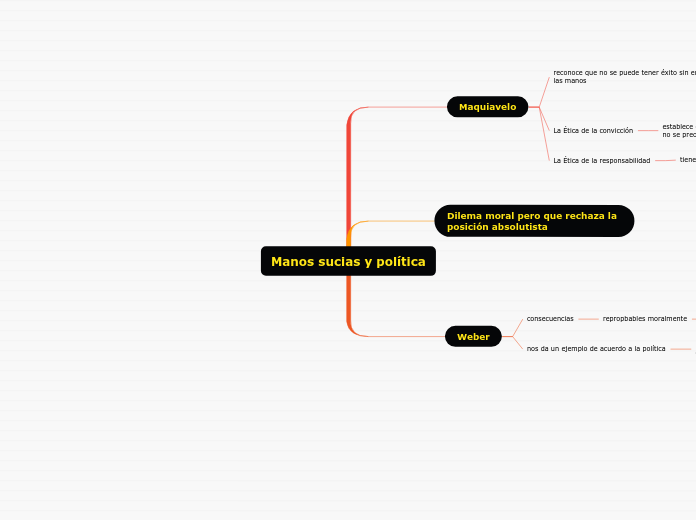によって Gianfranco Soto Galecio 4年前.
491
Manos sucias y política

によって Gianfranco Soto Galecio 4年前.
491

もっと見る

To name your story, you have to think about the overall message and what you want your audience to understand from the story. Also, make it relevant and easy to remember.
The middle of the story is where you add layers of complications that will lead to the end. Reveal more about the character's journey. Did their personality go through changes? How did they overcome the challenges? And as you build up the story’s central conflict, make it more personal to that character. Also, from the middle act, you have to lead into the final act.
Your character(s) need(s) motivation in order to solve the challenge(s).
Why does your character need to confront this challenge? What does he/she expect to accomplish by solving it?
See a few examples:
por lo que emplean básicamente 2 situaciones
fuera para cumplir los objetivos
fomentan la violencia
Each story has a main character and that character usually needs to solve a problem or challenge. The character's challenge is the one that creates tension throughout the story.
In most stories, there are 3 challenges. The number 3 is a mystical number symbolizing completeness. Try to come up with interesting challenges with which your character needs to struggle.
See a few examples below:
hacer acciones buenas se tiene que contar con medios moralmente malos
In the beginning of the story (or the exposition), you will need to introduce the setting and characters. You might also want to introduce the main conflict. This part of the story is important because it gives the reader necessary background information and maybe even a first insight into a character’s personality.
The setting (time & place) of a story can change throughout the plot.
Your story can take place wherever your imagination will take you to.
For example: in an elevator, in an enchanted forest, etc. Don't forget to give details of the environment each time the setting changes, otherwise, the story can be confusing. Also, mention the seasons as each of them has unique weather and events.
existen 2 conflictos de análisis moral
La deontológica o absolutista
quiere decir, el acto que una persona hace
La utilitarista o consecuencialista
quiere decir, es la preocupación de lo que pueda ocurrir
ya que por razones doctrinales o naturales una de ellas tiende a ser dominante
Characters are essential to a good story. Usually, the protagonist(s) is/are the most affected by the plot. Introduce a character by focusing on their actions, interests, and occupation, as the physical appearance doesn't make a difference in most cases.
Weber
Choose the type of your chacter:
profundiza la condición del hombre que tiene las manos sucias
pues, existen 2 criterios distintos
La Ética de la responsabilidad
La Ética de la convicción
Type in the name of your character.
quiere decir que es necesario actuar mal para poder actuar bien
Add other qualities/attributes of the character.